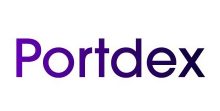Asset Tokenisation - Stock| Bond|Funds
Asset tokenization strategies for real estate, stocks, and bonds will become increasingly essential for companies and investors in the future. Tokenization, the process of converting traditional assets into digital tokens on a blockchain, offers several advantages that can revolutionize the way these assets are owned, traded, and managed.
Asset Tokenization Strategies for Real Estate:
-
Real Estate Ownership Tokens: Represent fractional ownership of a real estate property, allowing investors to own a portion of a property without the hassle and costs of direct ownership.
-
Real Estate Utility Tokens: Provide access to exclusive services or benefits related to a property, such as discounts on amenities, priority booking, or voting rights.
-
Real Estate Investment Tokens: Represent investments in real estate funds or projects, offering exposure to the potential returns of real estate investments.
Asset Tokenization Strategies for Stocks:
-
Stock Tokens: Represent fractional ownership of shares in a company, enabling smaller investments and broader participation in stock ownership.
-
Dividend Tokens: Represent the right to receive dividend payments from a company, providing a passive income stream for token holders.
-
Voting Tokens: Grant token holders voting rights in corporate governance decisions, promoting shareholder engagement and participation.
Asset Tokenization Strategies for Bonds:
-
Bond Tokens: Represent ownership of a portion of a bond, allowing fractional ownership and broader access to bond investments.
-
Bond Coupon Tokens: Represent the right to receive interest payments on a bond, providing a predictable income stream for token holders.
-
Convertible Bond Tokens: Offer the option to convert into equity shares of the issuing company, providing investors with potential upside exposure.
-
Expert Guidance and Advice: Asset tokenization is a complex and multifaceted process that involves legal, regulatory, technical, and marketing considerations. Companies need specialists who possess a deep understanding of these areas and can provide comprehensive guidance throughout the tokenization journey.
-
Regulatory Compliance: Asset tokenization must adhere to evolving regulations and legal requirements. Specialists can help companies navigate the regulatory landscape, identify potential compliance risks, and ensure that their tokenization efforts meet all applicable legal standards.
-
Tokenization Structuring and Design: Specialists can design tokenization structures that align with the company’s business objectives, asset type, target investors, and regulatory requirements. This includes determining token types, distribution mechanisms, and governance structures.
-
Technical Implementation and Infrastructure: Asset tokenization requires the development and implementation of blockchain-based infrastructure, smart contracts, and custody solutions. Specialists can oversee the technical aspects of tokenization, ensuring secure and efficient asset management.
-
Marketing and Investor Education: Successful tokenization often requires effective marketing and investor education strategies. Specialists can help companies develop and execute these strategies, ensuring that their token offering reaches the right audience and generates investor interest.
